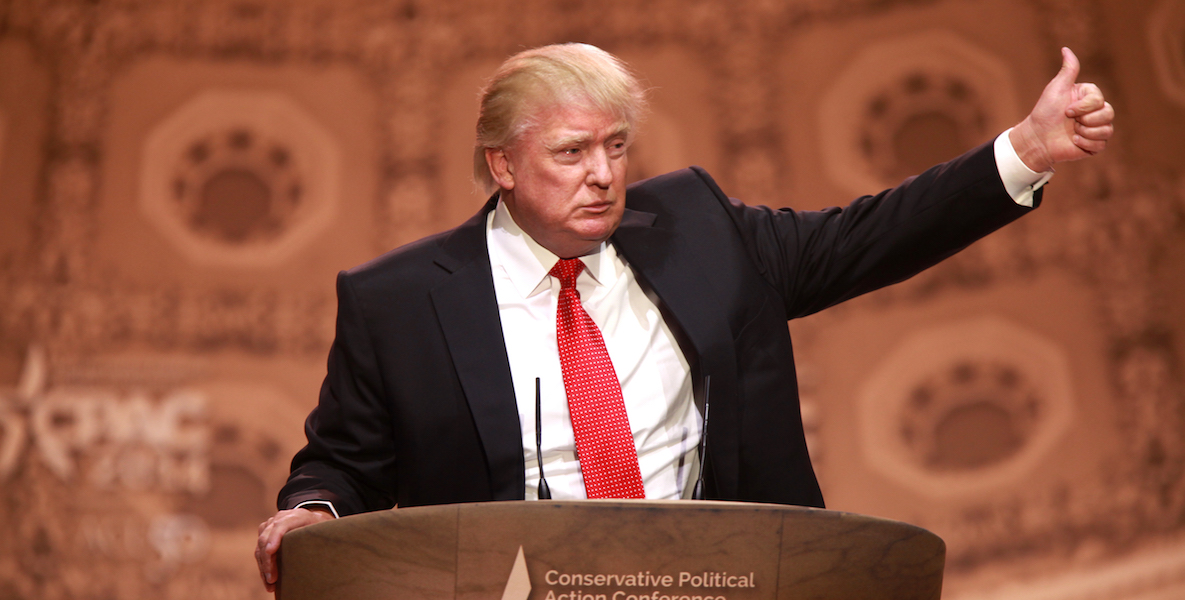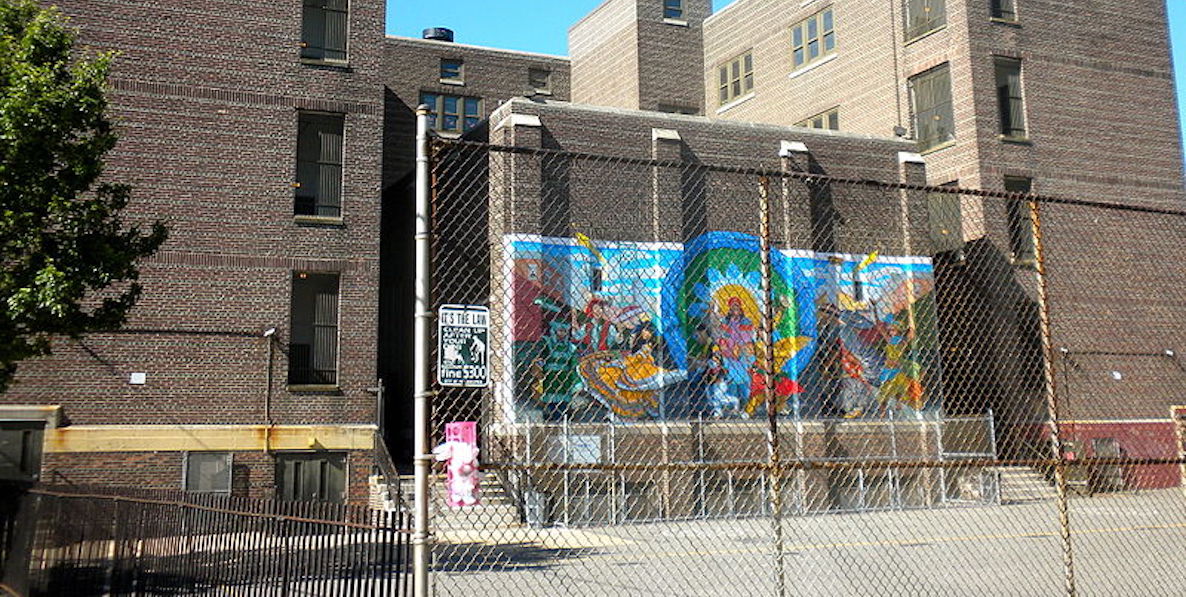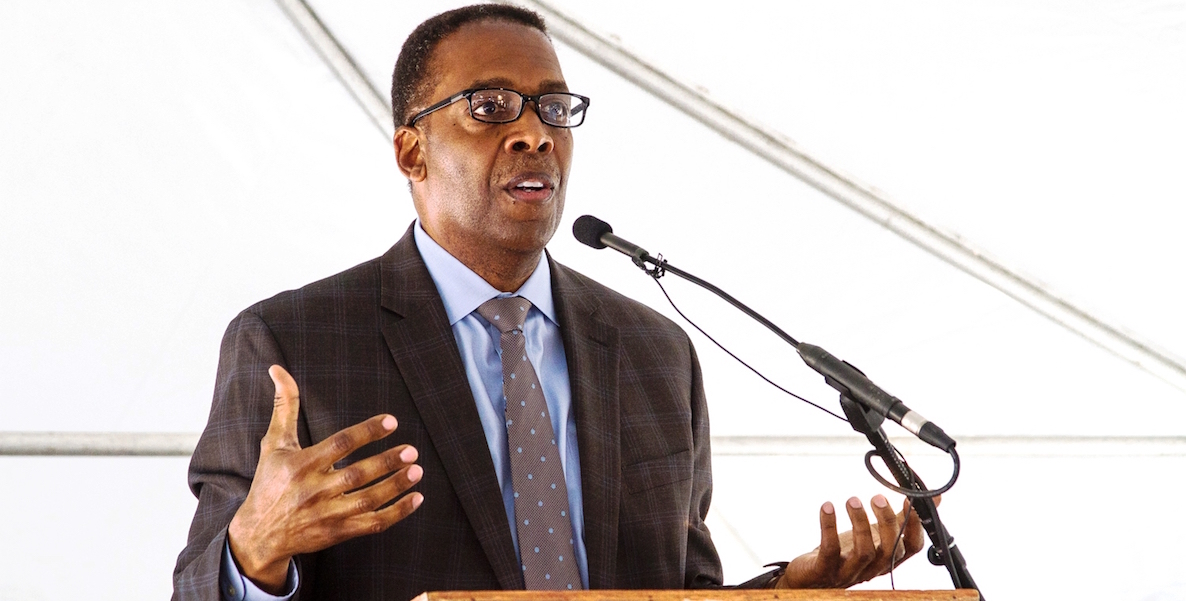It’s telling that, in a briefing for reporters last week in response to City Council’s preliminary budget plan that disregards the Mayor’s call for a 4.1 percent property tax increase to fund the schools, the administration sent out Finance Director Rob Dubow to make the case as to why Council was coming up short. Seriously? Dubow? Is there any one in local government with less credibility right now to talk about fiscal matters?
When last we saw Dubow, you’ll recall, he was stammering to respond to some pretty basic questions posed by Councilman Allan Domb about why some $40 billion of taxpayer money has long been running through unreconciled bank accounts, and where the now-$27 million (down from $40 million!) that’s missing from the city’s Consolidated Cash account might have run off to. The answers were less than forthcoming.
In fact, each time Dubow and City Treasurer Rasheia Johnson have submitted to Domb’s cross-examinations, their story has changed. (In a May 25 letter to Council President Darrell Clarke from Johnson, the number of accounts now behind on reconciliations is up to 7 from 5). Dubow hasn’t responded to my most recent email, asking how he’s coming on that search for the missing $27 million.
He’s not exactly the authority you want to send out there to make the case that Council is wrong in opposing yet another tax increase in the nation’s second highest-taxed city, is he? (Thanks for being you, Bridgeport, Connecticut, by the way.) Seriously: The best the administration could do is to send out the guy who can’t account for the money you’ve already given him to make the case for why he needs more?
Enter City Council. Now, many of us afflicted with the curse of closely watching local governance have long been critical of it. Former Mayor Bill Green once called it “the worst legislative body in the Free World,” right around the time that then-Councilmen John Street and Franny Rafferty were rolling around on the floor, engaging in pathetic fisticuffs.
I wish I could say that Council is that very leader. But I suspect that many of its actions—even those I support—are the product of Clarke’s petty political machinations, something he’s diabolically good at.
Lately, while surpassing that low bar, Council has continued to find novel ways to debase itself—and us in the process. There’s the scourge of Councilmanic Prerogative, for example, a “gentleman’s agreement” that finds district council members with unchallenged power over development in their districts—the common good be damned. There was Council President Darrell Clarke’s shameful squelching of a $1.5 billion selloff of Philadelphia Gas Works in 2014, because he didn’t want to hand his rival, then-Mayor Michael Nutter, a victory. And there’s Council’s hypocritical lack of transparency when it comes to its own $17 million budget; though it stands in judgment of how every other city department spends its money, Clarke refuses to itemize nearly $2 million in a mysterious “Purchase of Services” budgetary line item.
So you get my drift: The House of Commons this is not. Yet there Council was last week, standing up to a Mayor who has yet to run across a tax increase he doesn’t lust after. In Year One, it was the regressive soda tax, to fund pre-K and his Rebuild initiative, both well-intentioned. Now comes a proposed property tax increase—while Office of Property Assessment notices are making their way across the city, some with giant hikes. And all this while, in the case of the missing millions, the Mayor’s underlings are undermining confidence that the city can effectively manage the money it does take in.
![]()
All these tax hikes have been necessary because Mayor Kenney is a spendaholic. He inherited a budget of $3.9 billion; it’s now $4.6 billion. That’s an 18 percent increase, when the inflation rate is all of 1.9 percent. Rather than revert to yet more tax increases, Council’s response is to cut spending on prisons—where the population has decreased by nearly a third—by $95 million over 5 years and to collect $93 million in delinquent real estate taxes by signing onto Domb’s “sequestration” strategy, whereby a series of notices go to tax deadbeats threatening that their property will go into receivership if they don’t start cleaning up their debts.
In the case of delinquent residential landlords, that would mean tenants paying rent to the city instead of the property owner, with the funds held in escrow only to be released to the landlord once he’s caught up. It’s a threat that Domb—the Condo King who knows his real estate—calls a “hammer.” Finally, Council would reduce planned cuts to the wage tax to the tune of $340 million, which could be seen as a kind of backdoor tax on businesses.
Dubow responds that Council’s plan would only bring in $530 million for the schools over the next 5 years, when the projected hole is $100 million more than that, which Kenney’s tax-happy plan would exceed by $140 million. But, as stipulated, a) Dubow and Kenney have lost all credibility when it comes to managing our money, and b) Dubow and Kenney concede that the gap in funding facing the school district doesn’t likely materialize until year three.
All these tax hikes have been necessary because Mayor Kenney is a spendaholic. He inherited a budget of $3.9 billion; it’s now $4.6 billion.
So a crisis this is not. Kenney admirably has made himself accountable for the fate of our schools, but owing to his “tax first, ask questions later” ideology, he never got stakeholders like Clarke and the state together to try and put together a funding plan to get there. That would have been what a leader does.
I wish I could say that Council, on the other hand, is that very leader. But I suspect that many of its actions—even those I support—are the product of Clarke’s petty political machinations, something he’s diabolically good at. Let’s walk through them.
First, when Councilwoman Cindy Bass unveiled a budget proposal last week that, laudably, contained significant budget cuts, I saw the shadowy hand of Clarke behind it. That’s how he often operates—getting acolytes to strike his blows for him. In this case, he’s clearly messing with Kenney, as evidenced by his appearance on Channel 6’s Inside Story this past Sunday, when a sly smile crossed his face as he predicted that the Mayor would have a primary challenger next year. (Paging Alan Butkovitz).
![]()
Clarke strikes me as the prototypical big city pol, short on core conviction, but long on political street smarts. He’s a wholly political animal. Just as he stood in the way of economic growth by opposing the PGW sale to score political points against a rival—Nutter—so, too, will he stand for economic growth by opposing a property tax increase if it means scoring political points against another nemesis—Kenney.
Clarke—like Kenney—bemoans President Trump, yet they, like him, often allow petty resentments to determine policy. Clarke is on the right side of the property tax issue, but not necessarily for the right reasons. If he were truly pro-growth, he’d not only oppose Kenney’s addiction to levying taxes, but sign on to the plan that Paul Levy, Jerry Sweeney, Kenney, labor unions and African-American and Hispanic leadership groups have all come out for: Increasing commercial real estate taxes and diverting the proceeds to lowering the wage tax, enabling businesses to compete for talent and grow jobs. But that would a) hand Kenney a win and b) lessen the amount of money in the general fund at Clarke’s disposal to reward friends and punish enemies.
“It’s the responsibility of this City Council to protect the people’s money,” Clarke has said of Kenney’s property tax increase. “At some point, we have to say enough is enough.”
Funny, Clarke doesn’t seem all too concerned about protecting the people’s money when it comes to getting to the bottom of the missing $27 million or the accounting practices that have seen billions of dollars run through unreconciled accounts. No, it’s way too early to proclaim that Clarke has found a new moral center. But, in a highly-taxed, highly-impoverished, low-growth city that always seems to opt for taxing an ever-shrinking tax base, maybe finally saying “no” one time is what passes for reform, Philly style.
Photo via Flickr






